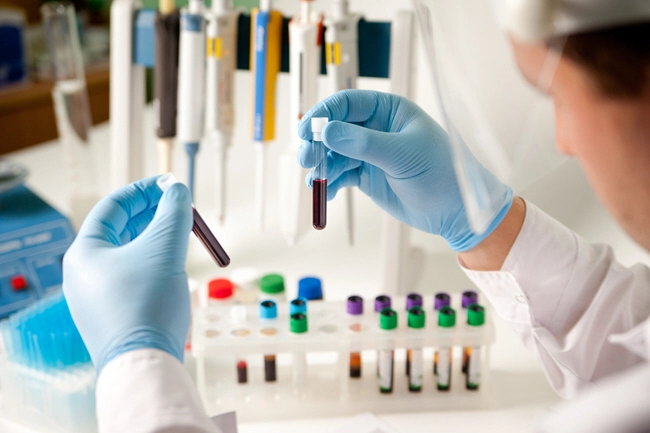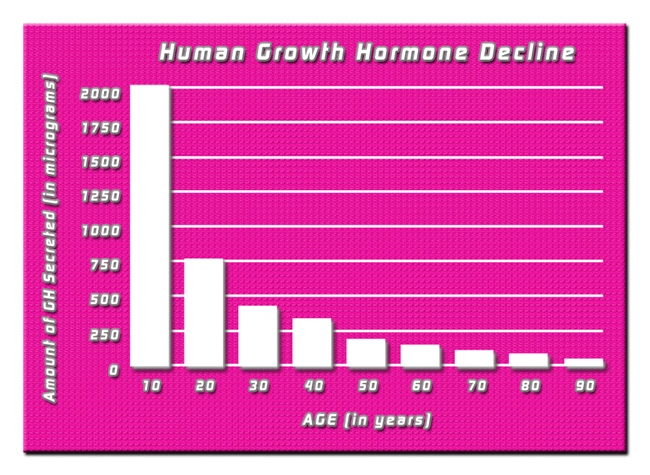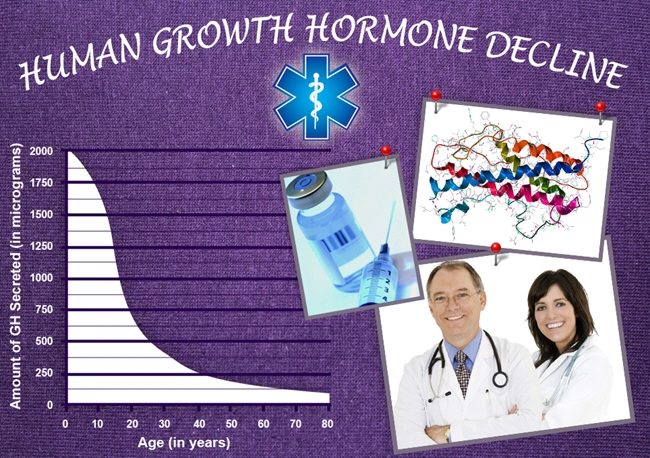
Introduction
The field of urology has seen significant advancements in recent years, particularly in the diagnosis and management of urological conditions affecting American men. One of the most promising developments is the integration of artificial intelligence (AI) into clinical practice. This article explores how AI is transforming the diagnosis of urological disorders, offering improved accuracy, efficiency, and patient outcomes.
The Emergence of AI in Urology
Artificial intelligence has made its mark across various medical specialties, and urology is no exception. AI algorithms, powered by machine learning and deep learning techniques, are being employed to analyze complex data sets, including medical imaging, patient histories, and laboratory results. This capability is particularly beneficial in the diagnosis of urological conditions, where early and accurate detection can significantly impact treatment success and quality of life.
Enhancing Diagnostic Accuracy
In the realm of urological health, AI systems have demonstrated remarkable potential in enhancing diagnostic accuracy. For instance, AI-driven analysis of prostate MRI scans can help differentiate between benign and malignant lesions with a higher degree of precision than traditional methods. This is crucial for American men, as prostate cancer remains one of the most prevalent cancers among this demographic. By improving the accuracy of initial diagnoses, AI helps reduce unnecessary biopsies and subsequent patient anxiety.
Streamlining Prostate Cancer Screening
Prostate cancer screening is a critical aspect of men's health, and AI is playing a pivotal role in streamlining this process. Traditional screening methods, such as the prostate-specific antigen (PSA) test, can lead to overdiagnosis and overtreatment. AI algorithms, however, can analyze a combination of PSA levels, genetic markers, and clinical data to provide a more nuanced risk assessment. This personalized approach can help American men make informed decisions about their prostate health, potentially reducing the burden of unnecessary interventions.
Improving Kidney Stone Management
Kidney stones are another common urological issue faced by American men. AI is being utilized to improve the diagnosis and management of this condition. By analyzing CT scans and patient data, AI systems can predict the likelihood of stone passage, recommend appropriate treatments, and even suggest preventive measures. This not only enhances patient care but also helps reduce healthcare costs by optimizing treatment plans.
Facilitating Early Detection of Bladder Cancer
Bladder cancer is another significant concern for American men, and early detection is key to successful treatment. AI-powered cystoscopy systems can analyze endoscopic images in real-time, identifying subtle abnormalities that might be missed by the human eye. This technology has the potential to increase the detection rate of early-stage bladder cancer, thereby improving survival rates and reducing the need for invasive procedures.
Challenges and Future Directions
Despite the promising applications of AI in urology, several challenges remain. These include the need for large, diverse datasets to train AI algorithms, ensuring data privacy and security, and addressing potential biases in AI systems. Additionally, the integration of AI into clinical workflows requires careful consideration to ensure it complements rather than replaces the expertise of urologists.
Looking ahead, the future of AI in urology for American men is bright. Ongoing research and development are focused on creating more sophisticated AI tools that can assist in the diagnosis and management of a wider range of urological conditions. As these technologies continue to evolve, they hold the potential to revolutionize men's health care, offering more personalized, efficient, and effective solutions.
Conclusion
The use of artificial intelligence in diagnosing urological conditions represents a significant advancement in men's health care in America. By enhancing diagnostic accuracy, streamlining screening processes, and facilitating early detection of diseases, AI is poised to improve patient outcomes and quality of life. As we navigate the challenges and embrace the opportunities presented by this technology, the future of urology looks increasingly promising for American men.
Contact Us Today For A Free Consultation
Dear Patient,
Once you have completing the above contact form, for security purposes and confirmation, please confirm your information by calling us.
Please call now: 1-800-380-5339.
Welcoming You To Our Clinic, Professor Tom Henderson.

- Alpha1-Adrenoreceptor Density, Testosterone, and LUTS Severity in American Men: Current Insights [Last Updated On: March 3rd, 2025] [Originally Added On: March 3rd, 2025]
- Ultrastructural Implications of Testosterone Deficiency on Bladder Muscle: Electron Microscopy Insights [Last Updated On: March 7th, 2025] [Originally Added On: March 7th, 2025]
- Managing Urethral Epithelial Atrophy: Androgen Deficiency and Hormone Replacement Therapy Explained [Last Updated On: March 8th, 2025] [Originally Added On: March 8th, 2025]
- Testosterone's Impact on Prostate Stroma: Collagen and Elastin Dynamics Explored in Study [Last Updated On: March 9th, 2025] [Originally Added On: March 9th, 2025]
- Unveiling the Role of Prostatic Acid Phosphatase in Monitoring Androgen Activity During Testosterone Replacement Therapy in Men [Last Updated On: March 10th, 2025] [Originally Added On: March 10th, 2025]
- Androgen-Dependent Regulation of Phosphodiesterase Type 5 in Prostatic Tissue: Implications for Male Urological Health [Last Updated On: March 10th, 2025] [Originally Added On: March 10th, 2025]
- Unveiling the Impact of Hormone Replacement on Pelvic Floor Electromyographic Activity in Hypogonadal Men [Last Updated On: March 12th, 2025] [Originally Added On: March 12th, 2025]
- Exploring Post-Void Residual Volume Changes in Men with Low Testosterone: A Longitudinal Study on Hormone Replacement Therapy [Last Updated On: March 13th, 2025] [Originally Added On: March 13th, 2025]
- Exploring Urinary Proteomics in Androgen-Deficient Men: Unveiling New Biomarkers for Lower Urinary Tract Dysfunction [Last Updated On: March 15th, 2025] [Originally Added On: March 15th, 2025]
- Metabolomic Analysis of Prostatic Fluid in Testosterone-Deficient Men: Urological Insights [Last Updated On: March 18th, 2025] [Originally Added On: March 18th, 2025]
- Urinary Flow Cytometry Insights into Hypogonadism and Testosterone Therapy Effects [Last Updated On: March 18th, 2025] [Originally Added On: March 18th, 2025]
- Testosterone Deficiency Impacts Mitochondrial Function in Bladder Smooth Muscle: Urological Insights [Last Updated On: March 19th, 2025] [Originally Added On: March 19th, 2025]
- Androgen-Regulated Genes in Urothelium: HRT Impact and Urological Health Insights [Last Updated On: March 19th, 2025] [Originally Added On: March 19th, 2025]
- Prostatic Inflammation in Hypogonadal Men: Histopathology and TRT Benefits [Last Updated On: March 19th, 2025] [Originally Added On: March 19th, 2025]
- Vesicourethral Reflux in Hypogonadal Men: Bladder Neck Dysfunction and Hormonal Impact [Last Updated On: March 20th, 2025] [Originally Added On: March 20th, 2025]
- Testosterone Deficiency's Impact on Lower Urinary Tract Autonomic Innervation: A Quantitative Analysis [Last Updated On: March 20th, 2025] [Originally Added On: March 20th, 2025]
- Aging Men's Prostate Health: Aromatase Activity, Testosterone Therapy, and BPH Risks [Last Updated On: March 20th, 2025] [Originally Added On: March 20th, 2025]
- TRT's Impact on Prostate Health: Assessing Blood Flow with Color Doppler Ultrasonography [Last Updated On: March 21st, 2025] [Originally Added On: March 21st, 2025]
- Prostatic Neuroendocrine Cells in Androgen-Deficient Men: Analysis and HRT Response [Last Updated On: March 21st, 2025] [Originally Added On: March 21st, 2025]
- Testosterone Deficiency and Kidney Stone Risk in American Men: Urine Sediment Patterns [Last Updated On: March 21st, 2025] [Originally Added On: March 21st, 2025]
- Neural Density in Detrusor Muscle of Hypogonadal Men: Clinical Insights for American Males [Last Updated On: March 22nd, 2025] [Originally Added On: March 22nd, 2025]
- Testosterone Therapy Impact on PSA Kinetics and Prostate Health Monitoring Protocols [Last Updated On: March 22nd, 2025] [Originally Added On: March 22nd, 2025]
- Testosterone Therapy's Impact on Prostatic Hyperplasia in Hypogonadal Men: Morphometric Insights [Last Updated On: March 22nd, 2025] [Originally Added On: March 22nd, 2025]
- Urodynamic Insights into Detrusor Overactivity and Testosterone Deficiency in Men [Last Updated On: March 23rd, 2025] [Originally Added On: March 23rd, 2025]
- UPP in Hypogonadal Men: Pre- and Post-ART Insights for Urologists [Last Updated On: March 23rd, 2025] [Originally Added On: March 23rd, 2025]
- TRT's Impact on Prostate Health Monitored by Transrectal Shear Wave Elastography [Last Updated On: March 23rd, 2025] [Originally Added On: March 23rd, 2025]
- TRT's Impact on Prostatic Arterial Flow: Doppler Ultrasonography Insights for American Men [Last Updated On: March 23rd, 2025] [Originally Added On: March 23rd, 2025]
- Ultrasonographic BWT and Urodynamics in Men with Late-Onset Hypogonadism: Clinical Insights [Last Updated On: March 23rd, 2025] [Originally Added On: March 23rd, 2025]
- DSD in Androgen-Deficient Men: Prevalence, Urodynamics, and Management Strategies [Last Updated On: March 23rd, 2025] [Originally Added On: March 23rd, 2025]
- Testosterone Deficiency and Bladder Function in American Men: Insights from AUM [Last Updated On: March 24th, 2025] [Originally Added On: March 24th, 2025]
- Testosterone's Influence on Bladder ECM: GAGs, PGs, and Men's Urological Health [Last Updated On: March 24th, 2025] [Originally Added On: March 24th, 2025]
- TRT Enhances Urinary Flow in Hypogonadal Men: Uroflowmetric and Hormonal Insights [Last Updated On: March 24th, 2025] [Originally Added On: March 24th, 2025]
- Testosterone Therapy's Impact on Non-Bacterial Prostatitis in Hypogonadal Men: Inflammatory Mediators [Last Updated On: March 24th, 2025] [Originally Added On: March 24th, 2025]
- Androgen Deficiency Impact on Urinary Flow: Urodynamic Analysis and Hormonal Insights [Last Updated On: March 24th, 2025] [Originally Added On: March 24th, 2025]
- TRT's Impact on Micturition Parameters in American Males with Hypogonadism [Last Updated On: March 24th, 2025] [Originally Added On: March 24th, 2025]
- Androgen Receptor Distribution in Lower Urinary Tract of Hypogonadal Men: Immunohistochemical Insights [Last Updated On: March 24th, 2025] [Originally Added On: March 24th, 2025]
- Urinary Exosomal miRNAs: Biomarkers for Monitoring LUTS Treatment in Hypogonadal American Men [Last Updated On: March 25th, 2025] [Originally Added On: March 25th, 2025]
- Prostatic Calcifications in Hypogonadal Men: Prevalence, Composition, and LUTS Association [Last Updated On: March 25th, 2025] [Originally Added On: March 25th, 2025]
- Prostatic Urothelial Metaplasia in Hypogonadism: Prevalence and Testosterone Therapy Impact [Last Updated On: March 25th, 2025] [Originally Added On: March 25th, 2025]
- TRT and Prostate Health: Growth Factors and Hyperplasia in American Men [Last Updated On: March 25th, 2025] [Originally Added On: March 25th, 2025]
- Postvoid Dribbling in Testosterone-Deficient Men: Insights and Hormone Therapy Solutions [Last Updated On: March 25th, 2025] [Originally Added On: March 25th, 2025]
- Testosterone's Impact on Prostate Gap Junction Proteins and Health Implications [Last Updated On: March 26th, 2025] [Originally Added On: March 26th, 2025]
- Testosterone Therapy's Impact on Prostate Cell Proliferation: A Histomorphometric Study [Last Updated On: March 26th, 2025] [Originally Added On: March 26th, 2025]
- Hypogonadism's Impact on Bladder Neck Collagen and Urodynamic Function in Men [Last Updated On: March 26th, 2025] [Originally Added On: March 26th, 2025]
- LOH Impact on Bladder Compliance in American Men: Urodynamic and Hormonal Insights [Last Updated On: March 26th, 2025] [Originally Added On: March 26th, 2025]
- Nocturnal Polyuria in Testosterone-Deficient Men: Mechanisms and Hormone Therapy Benefits [Last Updated On: March 27th, 2025] [Originally Added On: March 27th, 2025]
- Testosterone Replacement Therapy Improves Bladder Function in Hypogonadal Men: A Cystometric Study [Last Updated On: March 27th, 2025] [Originally Added On: March 27th, 2025]
- Androgen Therapy Modulates Apoptotic Index in Hypogonadal Men's Prostatic Epithelium [Last Updated On: March 27th, 2025] [Originally Added On: March 27th, 2025]
- Androgen Deficiency Impacts Bladder Function via Contractile Protein Expression in Men [Last Updated On: March 27th, 2025] [Originally Added On: March 27th, 2025]
- Neurogenic Bladder in Hypogonadal Men: Urodynamics, Hormones, and Clinical Management [Last Updated On: March 27th, 2025] [Originally Added On: March 27th, 2025]
- Testosterone Deficiency Effects on Prostatic Secretions: Biochemical Analysis and Health Implications [Last Updated On: March 27th, 2025] [Originally Added On: March 27th, 2025]
- Neurophysiological Impact of Testosterone on Bladder Sensory Afferents in American Men [Last Updated On: March 27th, 2025] [Originally Added On: March 27th, 2025]
- Testosterone's Impact on Detrusor Oxygenation in American Men with Androgen Deficiency [Last Updated On: March 27th, 2025] [Originally Added On: March 27th, 2025]
- Urethral Sphincter EMG Changes in Hypogonadal Men Post-Testosterone Therapy: Urological Insights [Last Updated On: March 27th, 2025] [Originally Added On: March 27th, 2025]
- Testosterone Therapy and PIN Incidence in Hypogonadal Men: Surveillance and Management [Last Updated On: March 28th, 2025] [Originally Added On: March 28th, 2025]
- PSMA Expression Analysis in Androgen-Deficient American Men Before and After ART [Last Updated On: March 28th, 2025] [Originally Added On: March 28th, 2025]
- TRT's Impact on Prostatic Smooth Muscle in American Men: Electron Microscopy Insights [Last Updated On: March 28th, 2025] [Originally Added On: March 28th, 2025]
- Testosterone Fluctuations in TRT and Maximum Urinary Flow Rate Variability in Hypogonadal Men [Last Updated On: March 28th, 2025] [Originally Added On: March 28th, 2025]
- Mapping Prostatic Stromal ARs in American Men with LUTS: Therapeutic and Diagnostic Insights [Last Updated On: March 30th, 2025] [Originally Added On: March 30th, 2025]
- Testosterone Deficiency and Bladder Sensation: QST Insights Before and After HRT [Last Updated On: March 31st, 2025] [Originally Added On: March 31st, 2025]
- Estrogen's Role in LUTS: Prostatic Stromal Aromatase Activity in Aging Men [Last Updated On: April 3rd, 2025] [Originally Added On: April 3rd, 2025]
- Testosterone Deficiency and Bladder Function: Impact and Improvement via HRT [Last Updated On: April 4th, 2025] [Originally Added On: April 4th, 2025]
- TRT Enhances Urethral Function in Hypogonadal Men: UPP Topography Study [Last Updated On: April 4th, 2025] [Originally Added On: April 4th, 2025]
- 3D Ultrasonography: Monitoring Prostate Health in Men on Testosterone Therapy [Last Updated On: April 4th, 2025] [Originally Added On: April 4th, 2025]
- Testosterone Deficiency and Bladder Wall Fibrosis: Impact and HRT Benefits in American Men [Last Updated On: April 8th, 2025] [Originally Added On: April 8th, 2025]
- Diurnal Testosterone Variations and LUTS in Hypogonadal Men: Insights and Implications [Last Updated On: April 8th, 2025] [Originally Added On: April 8th, 2025]
- Testosterone Deficiency and Bladder Function: Myofibroblast Insights for American Males [Last Updated On: April 9th, 2025] [Originally Added On: April 9th, 2025]
- Revolutionizing Urology: Assessing Androgen Receptor Sensitivity in Prostatic Tissue [Last Updated On: April 9th, 2025] [Originally Added On: April 9th, 2025]
- Prostatic Elastography: Monitoring Prostate Health in Men on Testosterone Therapy [Last Updated On: April 9th, 2025] [Originally Added On: April 9th, 2025]
- Testosterone Therapy Benefits for Hypogonadal Men with Prostatitis-like Symptoms [Last Updated On: April 10th, 2025] [Originally Added On: April 10th, 2025]
- Testosterone Therapy's Impact on Overactive Bladder in Androgen-Deficient American Men [Last Updated On: April 10th, 2025] [Originally Added On: April 10th, 2025]
- Power Doppler Ultrasonography Enhances TRT Monitoring in American Males' Urological Health [Last Updated On: April 12th, 2025] [Originally Added On: April 12th, 2025]
- TRT's Impact on Autophagy in Prostatic Cells of Hypogonadal American Males [Last Updated On: April 13th, 2025] [Originally Added On: April 13th, 2025]
- Intraprostatic Hormone Fluctuations Before and During Testosterone Replacement Therapy in Men [Last Updated On: April 13th, 2025] [Originally Added On: April 13th, 2025]
- Mathematical Modeling Predicts Prostatic Growth in TRT for American Men [Last Updated On: April 14th, 2025] [Originally Added On: April 14th, 2025]
- Testosterone Deficiency Impacts Bladder Afferent Nerve Activity in American Men [Last Updated On: April 14th, 2025] [Originally Added On: April 14th, 2025]
- CEUS: A Breakthrough in Diagnosing Urethral Vasocongestion in Hypogonadal Men [Last Updated On: April 15th, 2025] [Originally Added On: April 15th, 2025]
- Testosterone Therapy in Hypogonadal Men: Prostate Health and Stem Cell Implications [Last Updated On: April 16th, 2025] [Originally Added On: April 16th, 2025]
- Testosterone Deficiency and Urinary GAG Excretion: Biochemical and Clinical Insights [Last Updated On: April 16th, 2025] [Originally Added On: April 16th, 2025]
- BIA: A Novel Approach to Assess Prostate Changes in Men on TRT [Last Updated On: April 17th, 2025] [Originally Added On: April 17th, 2025]








